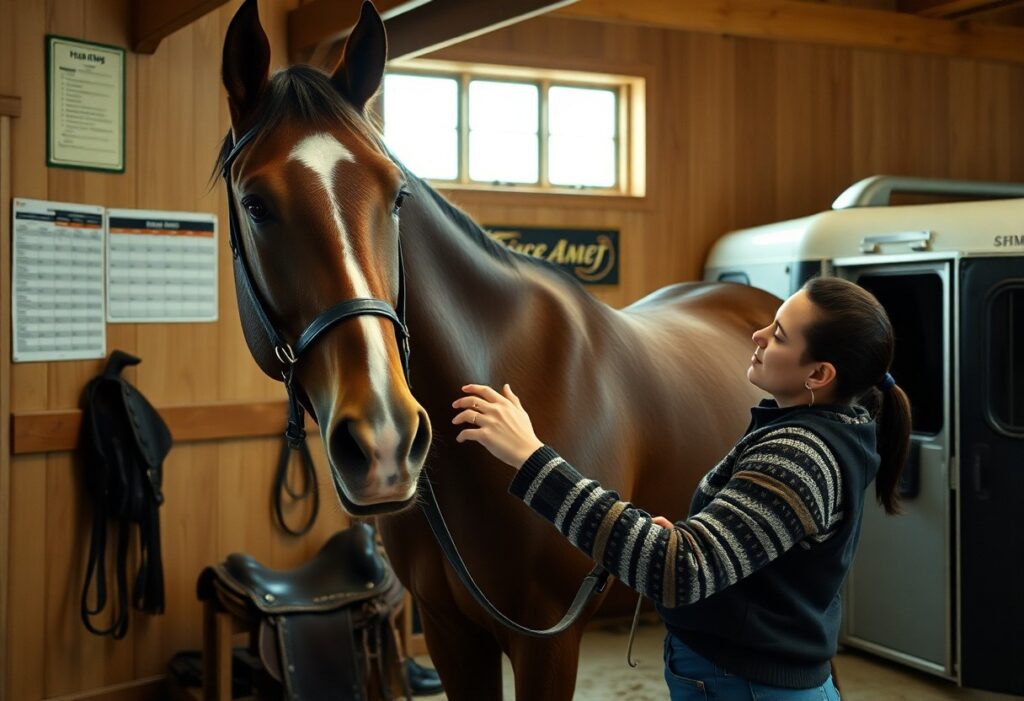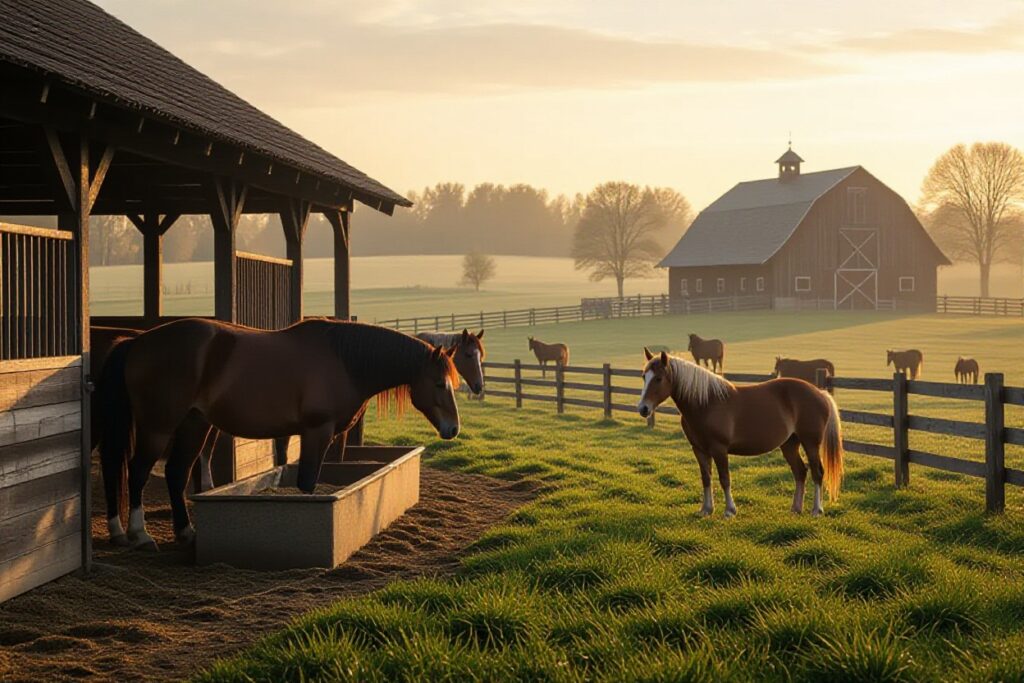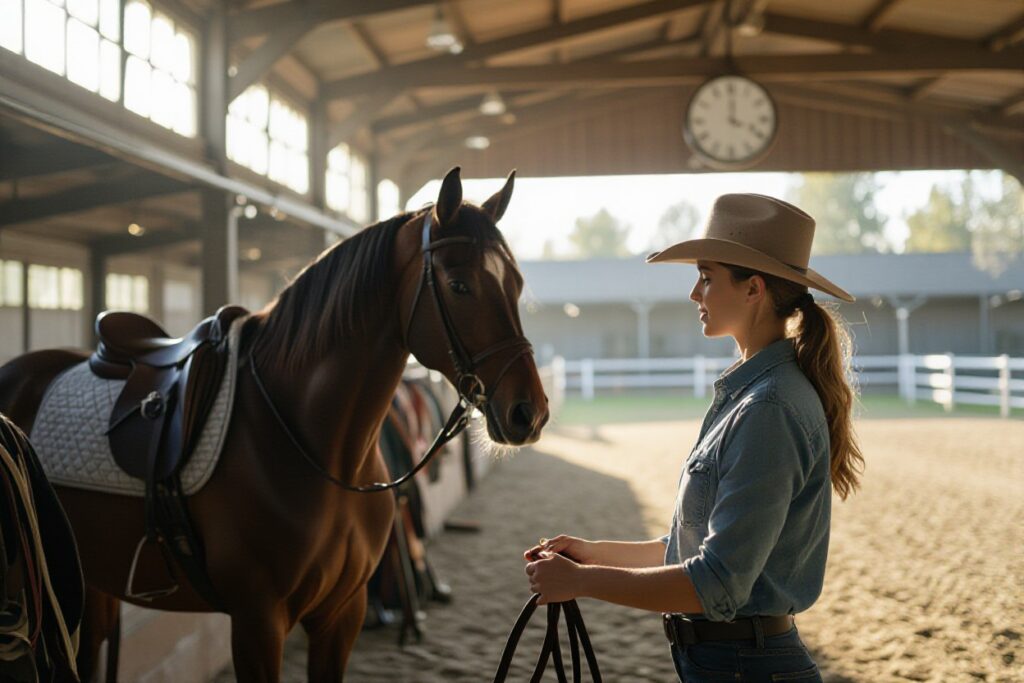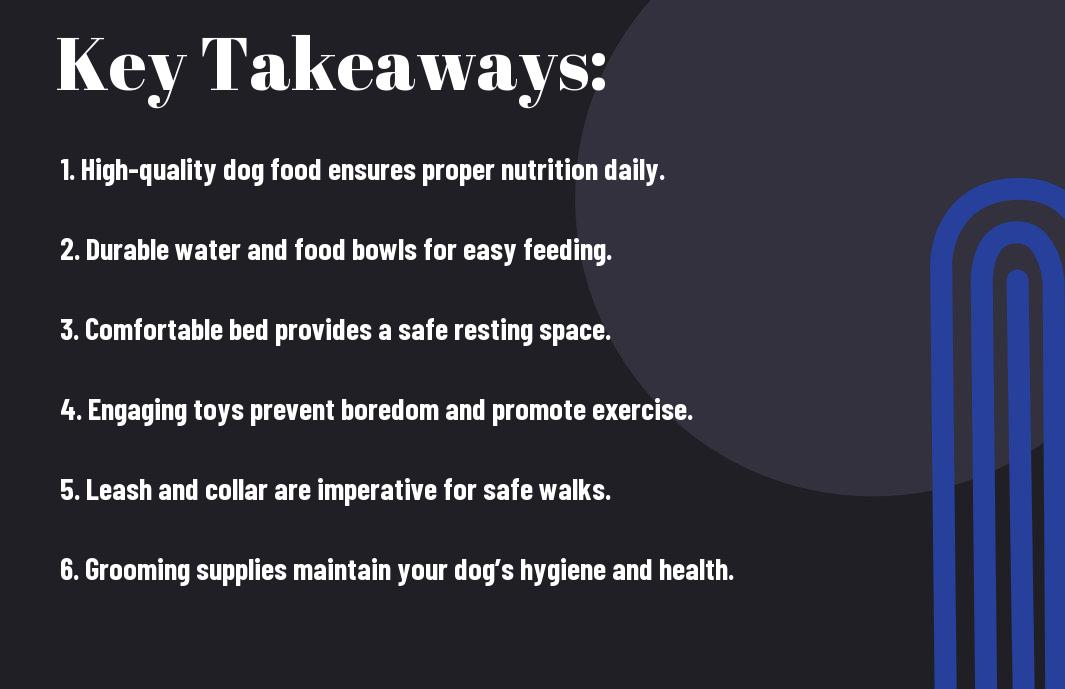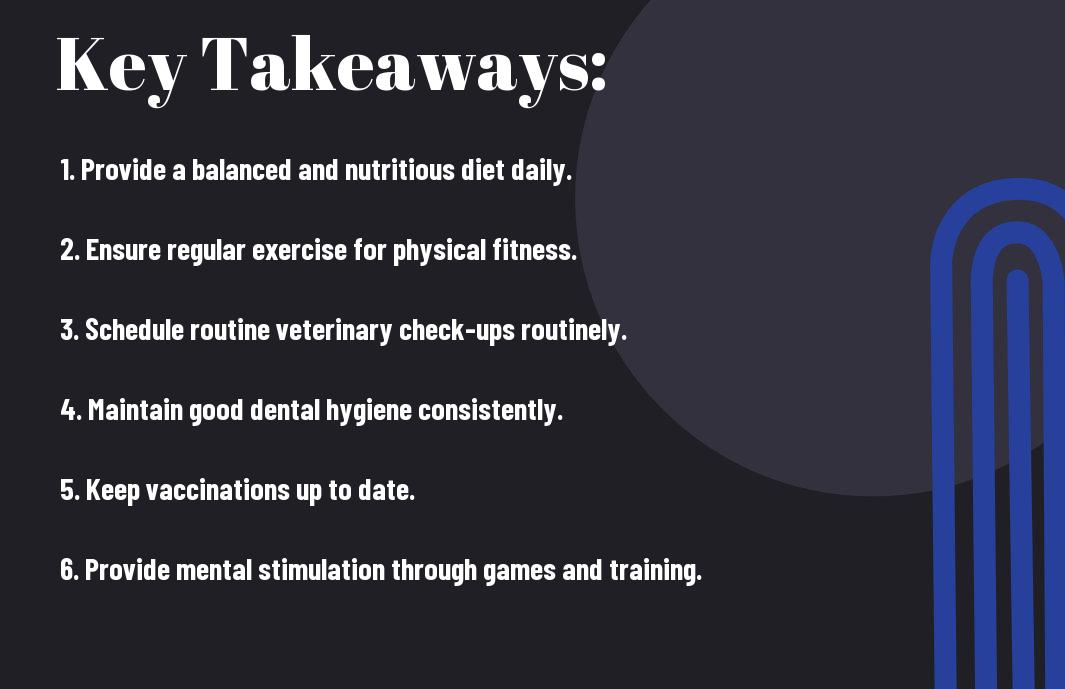As a horse trainer, your role extends far beyond the arena. Each day brings a variety of responsibilities that help maintain not only the physical well-being of your horses but also their mental and emotional health. Below are ten daily tasks that you manage to ensure everything runs smoothly.
1. Feeding and Nutrition
Starting your day with feeding is necessary. You provide the necessary nutrition tailored to each horse’s specific needs. This involves understanding the right balance of grains, hay, and supplements for optimal health.
2. Grooming
Daily grooming is vital for the well-being of your horses. You check for injuries, skin conditions, and general cleanliness while also establishing a bond with each horse through this hands-on care.
3. Veterinary Care
Scheduling regular veterinary appointments is part of your routine. You keep track of vaccinations, deworming, and dental care to ensure your horses remain healthy and sound.
4. Farrier Visits
Your horses require proper foot care. You coordinate with a farrier for regular hoof trims and shoeing, which is necessary for maintaining their mobility and performance.
5. Exercise Planning
When not training in the arena, you create exercise plans that include lunging or trail rides. This keeps your horses conditioned and mentally stimulated, which is important for their overall development.
6. Stable Management
Stable maintenance is a daily task that cannot be overlooked. You muck out stalls, ensure proper bedding, and keep the environment clean and safe for your horses.
7. Equipment Maintenance
Taking care of your tack is necessary to ensure safety during training sessions. You check your saddles, bridles, and other equipment for wear and tear, cleaning and repairing them as needed.
8. Financial Management
You also manage the financial aspects of your training business. This includes budgeting for supplies, tracking expenses, and invoicing clients, which is vital to maintaining a sustainable operation.
9. Client Communication
Keeping your clients informed about their horses’ progress is a key part of your job. Daily updates, discussions about training plans, and feedback sessions foster a strong relationship built on trust.
10. Continuing Education
Your growth as a trainer hinges on your commitment to continuing education. You spend time reading, attending workshops, or consulting with other professionals to stay updated on the latest training techniques and equine care practices.
Handling these daily tasks helps you build a successful training program that prioritizes the well-being of your horses while maintaining your business. Embrace these responsibilities as integral components of your role as a horse trainer beyond the arena.
